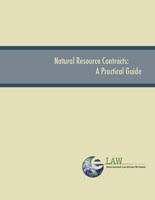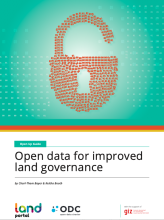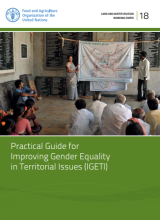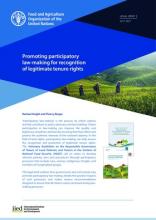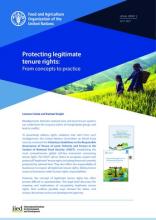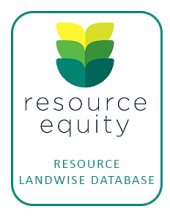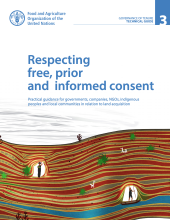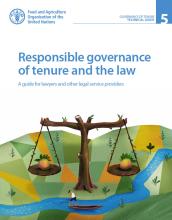Resources for Government
Natural Resource Contracts: A Practical Guide
This guide aims to explain common topics that are addressed in natural resource contracts and to provide suggestions for improving contracts that are vague or unfavorable to host countries and to the protection of land rights. It covers a number of topics relevant to contracts:
● Environmental and social issues
● Fiscal provisions
● Transparency
● Dispute resolution
This resource is part of the CCSI’s Directory of Community Guidance on Agreements Relating to Agriculture or Forestry Investment.
Open Up Guide for Land Governance, Version 2.0 (following public comments)
The Open Up Guide on Land Governance is a resource aimed to be used by governments from developing countries to collect and release land-related data to improve data quality, availability, accessibility and use for improved citizen engagement, decision making and innovation. It sets out:
-
Key datasets for land management accountability, and how they should be collected, stored, shared and published for improving land governance and transparency;
-
Good data policies and frameworks, including metadata, standards and governance frameworks if available;
-
Existing gaps or challenges in the policies and frameworks; and
Practical Guide for Improving Gender Equality in Territorial Issues (IGETI)
This guide presents a people-centred gender approach to increase and improve the provision of goods and services from agriculture, forestry and fisheries in a sustainable manner while reducing rural poverty. It first introduces the proposed approach for improving gender equality in territorial issues, with specific guidance for each phase of the gender-response planning process. Then, it presents some available participatory tools to support planning of gender-responsive territorial development. It will be relevant to a broad spectrum of actors: government officials and policy-makers, civil society groups, development practitioners and consultants.
Primer on International Investment Treaties and Investor-State Dispute Settlement
This primer gives an accessible overview of key aspects surrounding International Investment Treaties and Investor-State Dispute Settlement, and the implications for promoting a rights-based approach to governance.
Promoting participatory law-making for recognition of legitimate tenure rights
"Participatory law-making” is the process by which citizens actively contribute to policy advocacy and law-drafting. Citizen participation in law-making can improve the quality and legitimacy of policies and laws by ensuring that they reflect and protect the authentic interests of the national citizenry. In the field of land rights, participatory law-making can help ensure the recognition and protection of legitimate tenure rights. The Voluntary Guidelines on the Responsible Governance of Tenure of Land Fisheries and Forests in the Context of National Food Security (VGGT) call on states to develop relevant policies, laws and procedures through participatory processes that include men, women, Indigenous Peoples and members of marginalized groups.
Protecting legitimate tenure rights: From concepts to practice
Resource Securing community land and resource rights in Africa: A guide to legal reform and best practices
This guide explains key aspects of law and land rights that are important for securing community ownership and control of land and resources – also referred to as secure land and resource tenure. It explains how to identify and create opportunities for law reform and offers examples of reforms that have taken place in several African countries.
Respecting free, prior and informed consent
This technical guide sets out practical actions for government agencies, civil society organizations, land users and private investors globally to respect and comply with their responsibilities in relation to FPIC. It
• translates principles of responsible land governance and tenure (see the VGGT) into practical mechanisms, processes and actions,
• gives examples of good practice – what has worked, where, why and how, and
• provides useful tools for activities such as the design of policy and reform processes, for the design of investment projects and for guiding interventions.
Respecting the human rights of communities: a legal risk primer for commercial wind and solar project deployment
This legal risk primer provides the general counsels and corporate legal teams of commercial wind and solar companies with an overview of the key legal risks that may arise from the above community-related human rights impacts. It is a companion to CCSI's business guide on the same topic.
Responsible governance of tenure and the law - A guide for lawyers and other legal service providers
This guide is aimed at legal professionals working with governments, civil society, the private sector or development agencies as well as law societies, notaries, judges and all those who are interested in understanding the role of law in giving effect to the provisions of the Guidelines (VGGT). The VGGT provide important elements for shaping a well-functioning legal framework to facilitate their effective implementation at the national level. The technical guide reviews the legal implications of the VGGT and provides guidance on assessing national legislation, legal reform and improved implementation as well as the settlement of disputes


